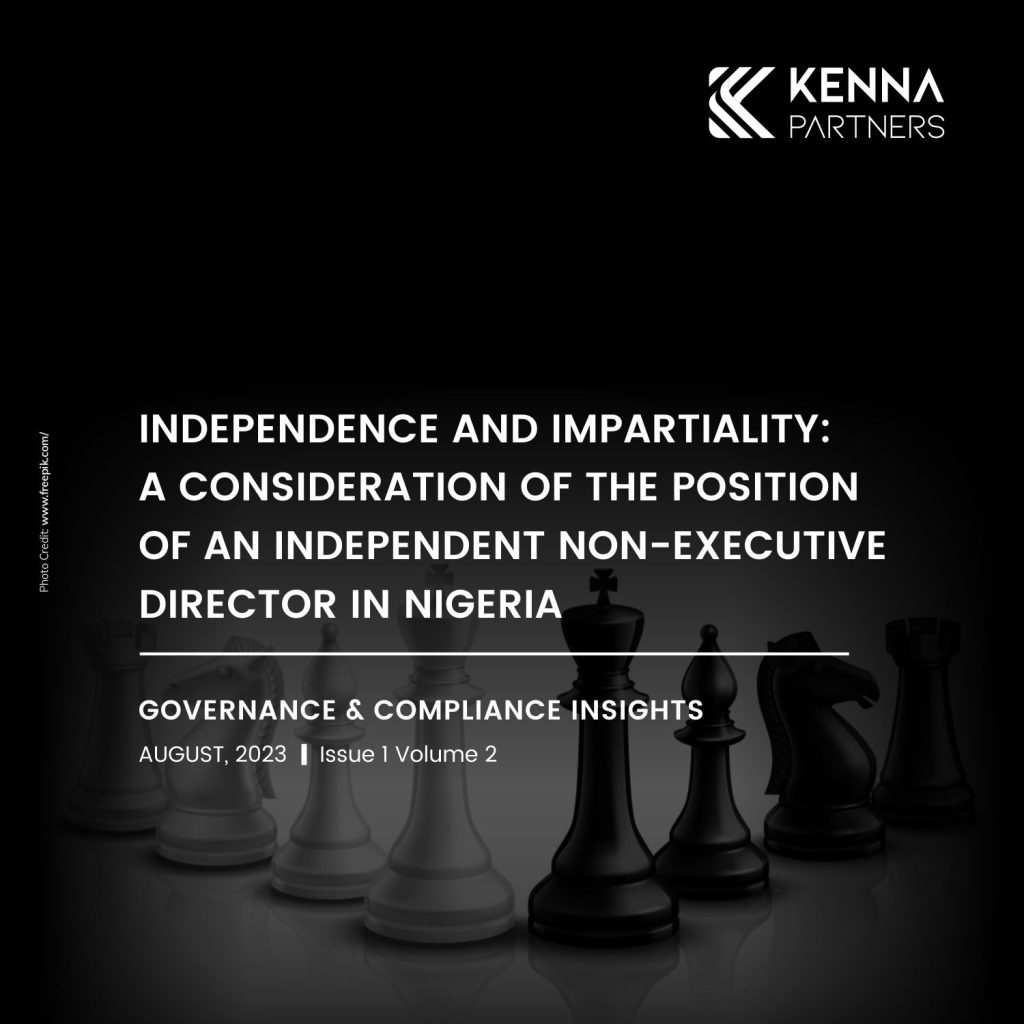
In ensuring good corporate governance and the sustainability of a company, the independence of directors is vital for avoiding undue influence from certain stakeholders. The requirement of independence is also intertwined with the requirement of impartiality required of directors in managing the affairs of the Company.
The above underscores the unique and sensitive roles of Independent Directors in running the affairs of companies, with particular regard to the sustainability of such companies. By their very nature, they bring an objective perspective to Boards whilst providing expert and uncompromised opinions exclusively in the Company’s best interest, thereby ensuring good corporate governance practices.
Over the years, the need for an Independent Non-Executive Director (INED) has moved from desirous to mandatory, as most corporate governance codes now insist on including 2 independent directors in the composition of Boards. Specifically, the Nigerian Code of Corporate Governance, 2018, recommends that majority of the Non-Executive Directors (NEDs) of a company should be independent. The Nigerian Communications Commission Code and the National Insurance Commission Guidelines also emphasise the need for independent directors on the Board. Most notably, the Companies and Allied Matters Act (CAMA), 2020, makes it mandatory for public companies to have at least three 3 independent non-executive directors on their Board.
This article examines the legal framework setting out the role that INEDs play as well as the factors that could affect the independence of INEDs, whilst equally examining the roles of INEDs and the need for their independence and impartiality.
